Filter by
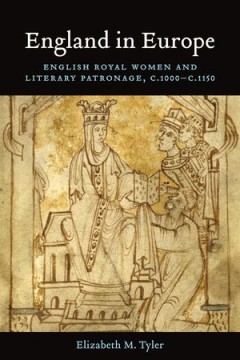
England in Europe : English Royal Women and Literary Patronage, c.1000-c.1150
In England in Europe, Elizabeth Tyler focuses on two histories: the Encomium Emmae Reginae, written for Emma the wife of the Æthelred II and Cnut, and The Life of King Edward, written for Edith the wife of Edward the Confessor.Tyler offers a bold literary and historical analysis of both texts and reveals how the two queens actively engaged in the patronage of history-writing and poetry to e…
- Edition
- -
- ISBN/ISSN
- 9781442640726
- Collation
- -
- Series Title
- -
- Call Number
- 800 TYL e
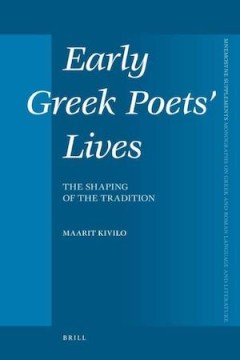
Early Greek Poets’ Lives : The Shaping of the Tradition
This book examines the formation and development of the biographical traditions about early Greek poets, focusing on the traditions of Hesiod, Stesichorus, Archilochus, Hipponax, Terpander and Sappho. The study provides a detailed overview of the traditions and chronographical material about these poets and seeks to clarify who were the creators of the particular traditions; what were the sourc…
- Edition
- -
- ISBN/ISSN
- 9789004186156
- Collation
- -
- Series Title
- Mnemosyne, Supplements, Volume: 322
- Call Number
- 800 KIV e

The Dynamics of Cultural Borders
This volume encompasses a broad span of issues related to borders as areas of intense activity substantially contributing to the dynamics of culture. The chapters address questions relating to the construction and reconstruction of borders, as well as the experience and representation of physical, spiritual, imagined and symbolic borders. The authors provide perspectives on emerging and dissolv…
- Edition
- -
- ISBN/ISSN
- 9789949770823
- Collation
- 260 halaman
- Series Title
- Approaches to Culture Theory, 6
- Call Number
- 800 KAN d
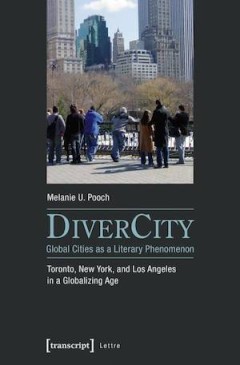
DiverCity – Global Cities as a Literary Phenomenon : Toronto, New York, and…
Based on the structured analysis of selected North American novels, this work examines global cities as a literary phenomenon (»DiverCity«). By analyzing Dionne Brand's Toronto, »What We All Long For« (2005), Chang-rae Lee's New York, »Native Speaker« (1995), and Karen Tei Yamashita's Los Angeles, »Tropic of Orange« (1997), Melanie U. Pooch provides the connecting link f…
- Edition
- -
- ISBN/ISSN
- 9783837635416
- Collation
- -
- Series Title
- -
- Call Number
- 800 POO d
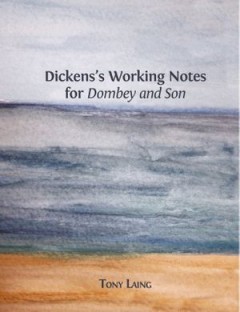
Dickens's Working Notes for 'Dombey and Son'
"This critical edition of the working notes for Dombey and Son (1848) is ideal for readers who wish to know more about Dickensâs craft and creativity. Drawing on the authorâs manuscript in the Victoria and Albert Museum, Londonâand containing hyperlinked facsimilesâDickensâs Working Notes for Dombey and Son offers a new digital transcription with a fresh commentary by T…
- Edition
- -
- ISBN/ISSN
- 9781783742257
- Collation
- 224 halaman
- Series Title
- -
- Call Number
- 800 LAI d

Behind the Essenes : History and Ideology in the Dead Sea Scrolls
A collection of essays by Philip Davies on aspects of the Dead Sea Scrolls. While composed to stand along, together these essays create a strong synthetic argument about the Essenes and the production of the Dead Sea Scrolls that remains important and challenging to the present day.
- Edition
- -
- ISBN/ISSN
- 9781946527219
- Collation
- -
- Series Title
- -
- Call Number
- 900 DAV b
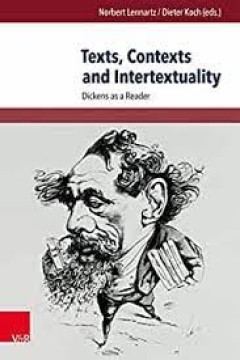
Texts, Contexts and Intertextuality : Dickens as a Reader
While Dickens used to be seen as a writer of shallow and sentimental children’s literature, as the prolific caterer to the new market of mass literature, this collection of essays shows that Dickens was not only a reader of high-brow literature, but also expected his readers to understand them in the context of contemporary scientific and economic debates. Covering a wide range of writers –…
- Edition
- -
- ISBN/ISSN
- 9783847102861
- Collation
- -
- Series Title
- Close Reading
- Call Number
- 920 KOC t
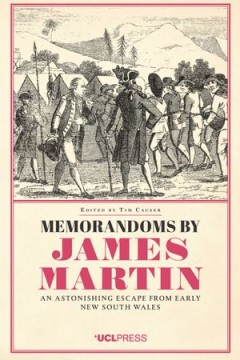
Memorandoms by James Martin : An Astonishing Escape from Early New South Wales
Among the vast body of manuscripts composed and collected by the philosopher and reformer Jeremy Bentham (1748 - 1832), held by UCL Library's Special Collections, is the earliest Australian convict narrative, Memorandoms by James Martin. This document also happens to be the only extant first-hand account of the most well-known, and most mythologized, escape from Australia by transported convict…
- Edition
- -
- ISBN/ISSN
- 9781911576839
- Collation
- -
- Series Title
- -
- Call Number
- 920 MEM
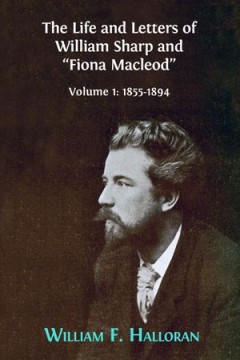
The Life and Letters of William Sharp and “Fiona Macleod”
"William Sharp (1855-1905) conducted one of the most audacious literary deceptions of his or any time. Sharp was a Scottish poet, novelist, biographer and editor who in 1893 began to write critically and commercially successful books under the name Fiona Macleod. This was far more than just a pseudonym: he corresponded as Macleod, enlisting his sister to provide the handwriting and address, and…
- Edition
- -
- ISBN/ISSN
- 9781783745029
- Collation
- -
- Series Title
- -
- Call Number
- 920 HAL l
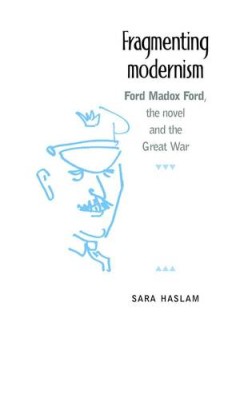
Fragmenting Modernism : Ford Madox Ford, the Novel and the Great War
Fragmenting Modernism is about Ford Madox Ford, a hero of the modernist literary revolution. Ford is a fascinating and fundamental figure of the time; not only because as a friend and critic of Ezra Pound and Joseph Conrad, editor of the English Review and author of The Good Soldier, he shaped the development of literary modernism. But as the grandson of Ford Madox Brown, and son of a German mu…
- Edition
- -
- ISBN/ISSN
- 9780719060557
- Collation
- -
- Series Title
- -
- Call Number
- 920 HAS f
 Computer Science, Information & General Works
Computer Science, Information & General Works  Philosophy & Psychology
Philosophy & Psychology  Religion
Religion  Social Sciences
Social Sciences  Language
Language  Pure Science
Pure Science  Applied Sciences
Applied Sciences  Art & Recreation
Art & Recreation  Literature
Literature  History & Geography
History & Geography